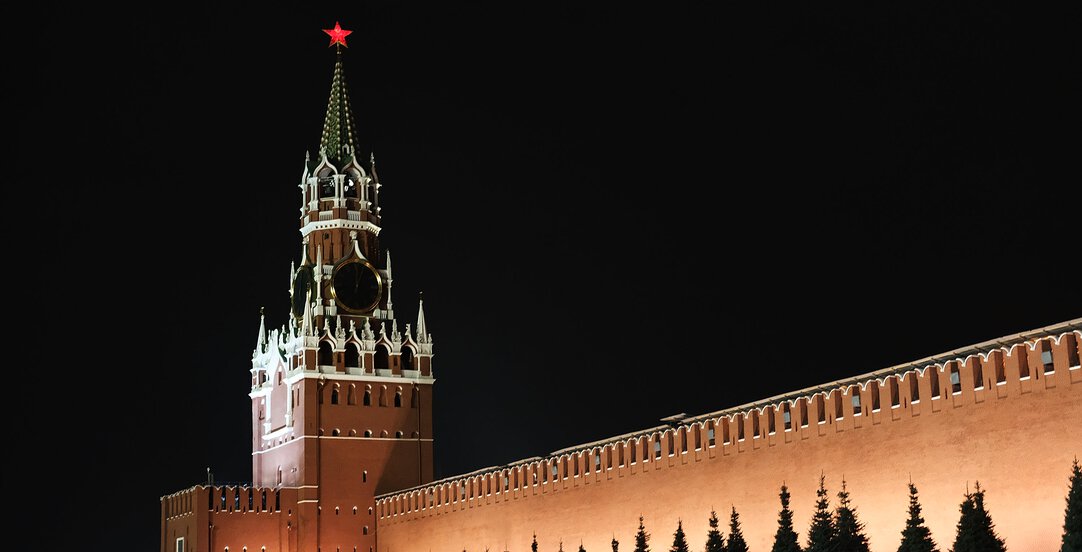Are all state-owned Russian companies controlled by President Putin?

This was a question many asked after a recent judgment from the English Court of Appeal. Sanctions target those designated as well as those owned or controlled by designated persons. Understanding the precise scope of what constitutes ‘control’ under UK sanctions can be challenging. In this article we shed some light on this analysis, based on recent case law.
In January 2023, the English High Court issued a judgment (PJSC National Bank Trust and another v Mints and others [2023] EWHC 118 (COMM) (“Mints”)) concerning the conduct of litigation by sanctioned persons, specifically whether the defendants should be granted a stay of proceedings due to the sanctioned status of certain claimants. The key issues were (i) whether the Court could enter judgment on a claim brought by a sanctioned person, or whether the proceedings should be stayed pending lifting of sanctions, and (ii) whether orders for costs, security and damages could be made and satisfied to or by sanctioned persons, and whether such actions were licensable by OFSI. These issues arose because the second claimant, Bank Okritie, was sanctioned by the UK. The Court ruled that no stay was necessary and that, to the extent required, the relevant actions were licensable by OFSI.
An ancillary issue in the case was whether the first claimant, PJSC National Bank Trust, was also sanctioned, by virtue of deemed ‘control’ of that claimant by sanctioned persons, namely Vladimir Putin and Elvira Nabiullina (Governor of Russia’s Central Bank). The Court ruled that the first claimant should not be deemed as sanctioned. This was, in broad terms, because (i) the control test needed to be viewed through the lens of the primary test of ownership i.e., be something akin to ownership, (ii) it would be unfair for market participants not to be in a position to readily understand if an important company was to be treated as sanctioned, and (iii) pure political influence, separate from more tangible ownership or control, should not automatically be equated with control. That part of the judgment was obiter, which means that it was not determinative of the main issues, and as such did not create a binding precedent.
However, because it concerned points which practitioners and market participants have been grappling with for some time with limited official guidance, these obiter comments attracted significant attention and fed into sanctions advisory work.
As was expected, the defendants appealed. On 6 October 2023, their appeal was rejected by the Court of Appeal ([2023] EWCA Civ 1132). In summary, the Court of Appeal ruled that:
- UK sanctions on Russia do not curtail a designated person’s ability to bring civil proceedings or the court’s ability to give a money judgment in favour of a designated person, therefore there should be no stay of proceedings; and
- In any event, OFSI can license certain orders, including costs orders and orders for security for costs, both for or against a designated person.
While no decision was technically required on the ‘control’ issue (due to it being obiter) the general importance of the issue was recognised, and as such, it was briefly dealt with by the Court of Appeal. Importantly, this included comments to the effect that:
- PJSC National Bank Trust is “controlled” by President Putin and/or Ms Nabiullina within the meaning of UK sanctions on Russia.
- The first instance judge, Cockerill J, had erred by “reading in” wording to the UK sanctions legislation and finding that there was a carve-out from the control test for control by political office, or in seeking to constrain the ambit of the test on the basis of perceived unfairness. The relevant test in the Russia Regulations 7(4) is extremely wide, using words such as “in all the circumstances” and control “by whatever means”. This broad ambit should be taken as clearly intended by the UK government, given the absence of any carve out.
- Specific reference was made to the fact that Mr Putin is at the “apex of a command economy” and that, as such, state ownership is a highly relevant factor when considering control. While recognising that the judgment could lead to the “absurd” outcome that every company in Russia could deemed to be controlled by Mr Putin and hence sanctioned, Flaux LJ commented that if this applies, then the remedy is for the UK government to amend the wording of the Russia Regulations or provide appropriate guidance.
The Court of Appeal’s judgment highlighted the risks which can arise from hastily implemented legislation. In addition, and whether intentionally or not, the judgment created significant uncertainty for practitioners and UK market participants alike. Indeed, the approach taken by the Court of Appeal to the ownership and control test gave rise to the possibility that all Russian entities must be considered subject to UK sanctions on the basis that they are controlled by Vladimir Putin. Although, like the first case, this aspect of the judgment was obiter and did not create binding precedent, it nonetheless caused a stir among market participants.
Post-Mints: UK government approach and subsequent case law
UK government approach
In light of the uncertainty generated by the obiter comments of the Court of Appeal, the Foreign Commonwealth & Development Office (FCDO) released the following statement, in response to the judgment to clarify the UK government’s position:
“The Government is carefully considering the impact of the Court of Appeal’s judgment in Mints & others v PJSC National Bank Trust & another, in particular the Court’s views that PJSC National Bank Trust is ‘controlled’ by Designated Persons by virtue of their political office, noting that the case was not decided on this point.
FCDO would look to designate a public body where possible when designating a public official if FCDO considered that the relevant official was exercising control over the public body.
There is no presumption on the part of the Government that a private entity based in or incorporated in Russia or any jurisdiction in which a public official is designated is in itself sufficient evidence to demonstrate that the relevant official exercises control over that entity.
In the interests of reducing any uncertainty, we are exploring the options available to the Government in clarifying this position further.”
In addition to this statement, further guidance was issued in order to clarify the “policy intention of the UK government’s approach to ownership and control in UK sanctions regulations…”. The key takeaways were as follows:
- The FCDO does not generally consider designated public officials to exercise control over a public body in which they hold a leadership function.
- If the FCDO considered that a public official was exercising control over the public body under UK sanctions regulations, FCDO would look to designate the public body at the same time as designating the relevant public official.
- There is no presumption on the part of the UK government that a private entity is subject to the control of a designated public official simply because that entity is based or incorporated in a jurisdiction in which that official has a leading role in economic policy or decision-making.
- Specifically, for the purposes of regulation 7(4) of the Russia (Sanctions) (EU Exit) Regulations 2019, the UK government does not consider that President Putin exercises indirect or de facto control over all entities in the Russian economy merely by virtue of his occupation of the Russian Presidency.
The guidance helpfully establishes that the UK government does not consider all Russian companies to be deemed designated persons by virtue of Vladimir Putin’s own designation. Although the statement is just guidance and does not have the force of law, it strongly suggests that UK enforcement authorities would be unlikely to take action against companies for dealing with non-designated private sector Russian persons.
Litasco SA v Der Mond Oil and Gas Africa SA & Locafrique Holdings SA [2023] EWHC 2866 (Comm) (“Litasco”)
In November 2023, the English High Court handed down the first binding decision relating to the “control” issue in the case of Litasco. The case concerned the failure of the Respondent (Der Mond) to fulfil certain payment obligations relating to trades of Nigerian crude oil. As part of its defence, the respondent proffered, amongst other arguments, that the claimant (Litasco) and its parent company, Lukoil, were controlled by Vladimir Putin and therefore subject to UK sanctions. The respondent relied upon the discussion of this issue in Mints to further its argument.
Dismissing the argument, Foxton J sought to distinguish the facts in Litasco from those in Mints, as a means of dealing with the comments made by Flaux LJ and the Court of Appeal. Indeed, it was noted by Foxton J that it was not surprising that PJSC National Bank Trust was deemed as being controlled by Vladimir Putin on the basis that it was “an organ of the state over which President Putin exercised de facto control”. Conversely, Foxton J concluded that, with respect to Litasco, there was no evidence to show (or arguably show) that Litasco was presently under the de facto control of Vladimir Putin. This was because Litasco’s parent company, Lukoil, was a private company and clearly not an arm of the Russian state.
Conclusion
The crux of Litasco, and what practitioners and UK market participants should take into account when assessing control, is that “an existing influence” by a sanctioned person over the relevant business of a company is required (i.e. de facto control). The fact that a sanctioned person could, in theory, influence the operations of a company is insufficient for the purposes of the control test. Indeed, Foxton J commented that with respect to Litasco, Vladimir Putin was “wholly ignorant” of Litasco’s existence and Litasco’s affairs “were conducted on a routine basis without any thought of him”.
The conclusions reached by Foxton J on the control test are thus more aligned with the UK government guidance and go at least some way to alleviating the concerns caused by the obiter comments of Flaux LJ in Mints.
Nonetheless, market participants and practitioners must still conduct sufficient due diligence to assess whether a counterparty may be subject to de facto control (“existing influence”) by a designated person. In particular, where sanctions “red flags” are present, market participants should engage in a robust due diligence process. In this regard, OFSI has laid out steps in its enforcement guidance at paragraphs 3.23 – 3.32, with particular reference to ownership and control, that may assist.
The Wikborg Rein sanctions team is also on hand to answer any questions or provide assistance on all aspects of counterparty due diligence.
Sanctions and trade compliance is becoming increasingly complex to navigate. WR Sanctions Alerts provide you with updates on material developments in the country-specific sanctions programmes implemented by the US, the UN, the UK, the EU and Norway. You can sign up here.


